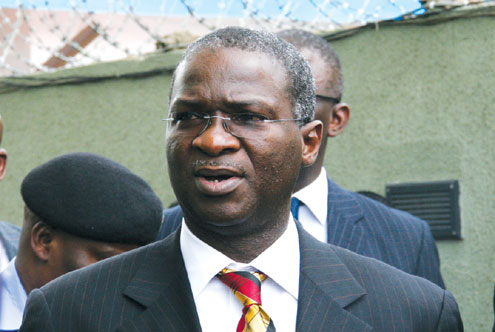Energy experts on Saturday, January 12, 2019 identified ignorance and misconception as major setbacks to the adoption of renewable energy in Nigeria.

An engineer of solar energy, Ayo Adenigba, and Mrs Ruth Ifah, energy researcher at Nexgen Energy and Allied Services, disclosed this in separate interviews with the News Agency of Nigeria (NAN) in Ibadan.
Adenigba stated that the major issue that needed to be addressed in the country in terms of the deployment of renewable energy was the lack of up-to-date information on technology and its possibilities.
“Although there is a widespread awareness of the potentials of renewable energy, there are lots of misconceptions about the technologies used in harnessing this energy; photovoltaic (solar) cells are perceived to be incapable of powering industrial loads.
“That is not the case anymore, we now have large scale `multi megawatt’ solar and wind power stations across the world powering cities and industries.
“The technology in harnessing the renewable sources and particularly, solar energy itself, has improved rapidly, making the deployment very attractive.
“There is also the conservative approach to purchasing Renewable Energy (RE) products on the premise that it might not work, since they have no experience with such technology before,” he said.
Adenigba, however, said that although a lot of policies were in place to encourage private investors in the renewable energy industries, the framework was still not clear enough to guarantee return on investment, hence the little investment being made in the industry.
He said that sustainable development goals could only be achieved in Nigeria if the country embraced renewable energy solutions.
“One can only begin to consider a much more efficient and safer (green) way of energy utilisation when the energy is readily available for use and very reliable.
“In Nigeria, we have found ourselves caught in the middle of a serious quest to provide enough energy in view of the growing demand and meeting the global objectives to do so in the most climate-friendly way.
“Nexgen has provided reliable electricity by deploying solar Hybrid solutions all across Nigeria, so as to reduce the excessive pressure on the national grid and thereby increasing the reliability of power supply for end users.
“There has been a recorded increase in productivity for all users of this solution. A large proportion of the Nigerian populace are undeserved, despite the appreciable increase in the power generated through the national grid in recent times.
“The solar alternative compliments the grid supply, hence all electrically powered business operations can still continue even when the grid fails,” said Adenigba.
The solar energy expert further said the damage done by petrol/diesel generators was irrecoverable.
“If you take a close look at the noise level introduced to the environment by these generators, they reduce the innate ability to concentrate.
“This negatively affects the quality of one’s night rest and the neighborhood. But with a solar solution, you can be sure to have a sound sleep with no toxic fumes from the system.
“Lives will also be preserved through the deployment of renewable energy such as a solar generator, instead of a highly toxic ‘I better pass my neighbour’ petrol generator,” he said.
The expert, therefore, urged government at all levels to ease transportation of products for renewable energy service providers in the country.
“Government can enhance Small and Medium Scale Enterprises (SMEs) in the RE industry like Nexgen Energy, by solving the incessant problem of congestion and gridlock at the Apapa Port, Lagos State; as this will facilitate more deployment and availability of renewable energy products.
“Another innovative strategy to solve the problem of SMEs is to give tax credits to citizens who adopt any renewable energy solution.
“This would be a motivating factor for those who are indifferent about the new trends of energy utilisation,” he said.
In her submission, Ifah stated that the two main factors that people considered were the initial cost or capital and the inadequate knowledge or awareness of the value of renewable energy on the long run.
“We are solving these problems through diversification on solar range solutions to ensure several classes of persons can afford a solar solution, and we are also working in partnership with foreign bodies for Rural Electrification in Nigeria.
“We strongly believe that government could help with subsidised customs taxes so that renewable energy providers can make solar solutions available at affordable rates to the masses.
“This will in turn reduce dependence on the national grid like it is being done in other climes,” she said.
By Ibukun Emiola
